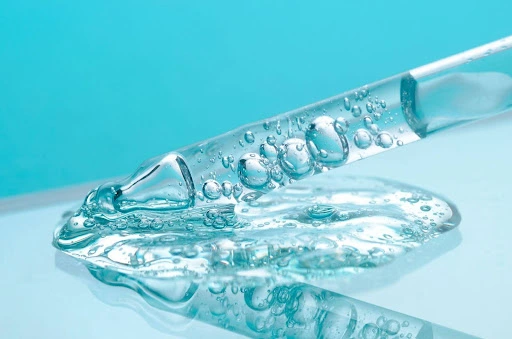Niacinamide The Perfect Anti-aging Ally

Niacinamide, also known as vitamin B3, has gained significant attention in skincare due to its endless list of benefits, including its ability to combat aging. But what is niacinamide?
Niacinamide is a vitamin that can be soluble in water and plays a crucial role in various physiological processes within the body, including energy metabolism, DNA repair, and cell signaling. In the skincare world, niacinamide is valued for its numerous benefits, ranging from anti-aging properties to its ability to improve overall skin health. Here’s why niacinamide is often considered a perfect ally in anti-aging skincare:
Why Niacinamide is ideal for anti-aging treatment
Among the several reasons why niacinamide is considered perfect to boost any anti-aging treatment, 6 main points should be highlighted:
First of all, it boosts collagen production. Collagen is a protein that provides structural support to the skin, keeping it firm and elastic. Niacinamide stimulates the production of collagen, helping to improve skin elasticity and reduce the appearance of fine lines and wrinkles.
Secondly, it reduces hyperpigmentation. Hyperpigmentation, such as dark spots, age spots, and uneven skin tone, is a common sign of aging. Niacinamide inhibits the transfer of melanin, which is the pigment responsible for skin color, to the skin’s surface, thereby reducing the appearance of hyperpigmentation and promoting a more even complexion.
Moreover, it contains anti-inflammatory properties. Chronic inflammation is linked to various skin issues, including premature aging. Niacinamide possesses anti-inflammatory properties that can help soothe irritated skin, reduce redness, and calm conditions like acne and rosacea. Niacinamide contributes to overall skin health and a more youthful appearance by minimizing inflammation.
It also strengthens the skin barrier. The skin barrier acts as a protective shield against environmental aggressors, moisture loss, and irritants and niacinamide can enhance the skin barrier function by increasing the production of ceramides, which are lipid molecules that help maintain moisture and prevent water loss. A stronger skin barrier results in healthier, more resilient skin that is better able to defend against signs of aging.
Furthermore, its antioxidant activity should be highlighted. Niacinamide exhibits antioxidant properties, meaning it can neutralize free radicals that contribute to skin aging. Free radicals are unstable molecules generated by factors like UV radiation, pollution, and stress, which can damage skin cells and, as a consequence, accelerate aging processes. By collecting free radicals, niacinamide helps protect the skin from oxidative stress and maintain its youthful vitality.
Finally, it regulates oil production. Excess oil production can lead to clogged pores, acne breakouts, and an uneven skin texture, all of which can exacerbate the appearance of aging. Niacinamide helps regulate sebum (oil) production in the skin, keeping pores clear and minimizing the risk of breakouts. Balanced oil levels contribute to a smoother, more refined complexion.
How to incorporate niacinamide into my skincare routine
Incorporating niacinamide in your skincare routine can offer numerous benefits for your skin. Learn how you can incorporate it into your skincare routine and the benefits it has:
- Choose the right product: The first thing you have to do is look for skincare products such as serums, moisturizers, or creams that contain niacinamide as an active ingredient. Check the ingredient list to ensure niacinamide is present and ideally listed in the top half of the ingredient list for optimal efficacy.
- Start slowly: If you are new to using niacinamide (or any other product), start by introducing it slowly into your routine to assess how your skin reacts. Begin by using it every other day or a few times a week, then gradually increase the frequency if your skin tolerates it well.
- Apply after cleansing but before moisturizing: Niacinamide can be applied after cleansing your face and before applying moisturizer or other treatments. This allows it to penetrate the skin effectively and work its magic.
- Pair with sunscreen: Niacinamide has been shown to have some photoprotective properties, so using it in conjunction with sunscreen during the day can provide added protection against UV damage.
- Consider combination therapy: Niacinamide can be combined with other active ingredients such as retinoids, vitamin C, or hyaluronic acid for enhanced benefits. However, if you are using prescription treatments, consult with a dermatologist to ensure compatibility and avoid potential interactions.
5 benefits of incorporating niacinamide into your skincare routine
- Improves skin texture because it helps to strengthen the skin barrier, which can result in smoother, more even skin texture.
- Reduces redness and inflammation because it can help calm redness and soothe irritated skin, making it beneficial for those with sensitive or acne-prone skin.
- Minimizes pores because it regulates sebum production, which can help minimize the appearance of pores and reduce excess oiliness.
- Brightens skin tone because it can help to fade hyperpigmentation and dark spots, leading to a more even and radiant complexion over time.
Boosts collagen production because it can stimulate collagen synthesis, leading to firmer, more elastic skin and reducing the appearance of fine lines and wrinkles.
